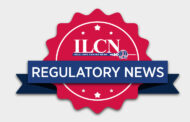On May 16, the US Food and Drug Administration granted accelerated approval to tarlatamab-dlle for extensive-stage small cell lung cancer (ES-SCLC) with disease progression on or after platinum-based chemotherapy.1
Tarlatamab is the first DLL3-targeting bispecific T-cell engager therapy that activates a patient’s T cells to attack DLL3-expressing tumor cells.2
Efficacy was evaluated in 99 patients with relapsed/refractory ES-SCLC with disease progression following platinum-based chemotherapy enrolled in DeLLphi-301, an open-label, multicenter, multi-cohort study.3 Patients with symptomatic brain metastases, interstitial lung disease or non-infectious pneumonitis, and active immunodeficiency were excluded. Patients received tarlatamab until disease progression or unacceptable toxicity.
The major efficacy outcome measures were overall response rate (ORR) per RECIST 1.1 and duration of response (DOR), as assessed by blinded independent central review. The ORR was 40%, and the median DOR was 9.7 months. Of the 69 patients with available data regarding platinum sensitivity status, the ORR was 52% in 27 patients with platinum-resistant SCLC (defined as progression <90 days after last dose of platinum therapy) and 31% in 42 patients with platinum-sensitive SCLC (defined as progression ≥90 days after last dose of platinum therapy).
The prescribing information for tarlatamab-dlle includes a Boxed Warning for serious or life-threatening cytokine release syndrome (CRS) and neurologic toxicity, including immune effector cell-associated neurotoxicity syndrome (ICANS). The most common adverse reactions (>20%) were cytokine release syndrome (CRS), fatigue, pyrexia, dysgeusia, decreased appetite, musculoskeletal pain, constipation, anemia, and nausea. The most common grade 3 or 4 laboratory abnormalities (≥5%) were decreased lymphocytes, decreased sodium, increased uric acid, decreased total neutrophils, decreased hemoglobin, increased activated partial thromboplastin time, and decreased potassium.
References
- 1. FDA grants accelerated approval to tarlatamab-dlle for extensive stage small cell lung cancer
- 2. Giffin MJ, Cooke K, Lobenhofer EK, et al. AMG 757, a Half-Life Extended, DLL3-Targeted Bispecific T-Cell Engager, Shows High Potency and Sensitivity in Preclinical Models of Small-Cell Lung Cancer. Clin Cancer Res. 2021;27:1526-1537.
- 3. Ahn MJ, Cho BC, Felip E, et al. Tarlatamab for Patients with Previously Treated Small-Cell Lung Cancer. N Engl J Med. 2023;389(22):2063-2075. doi:10.1056/NEJMoa2307980



